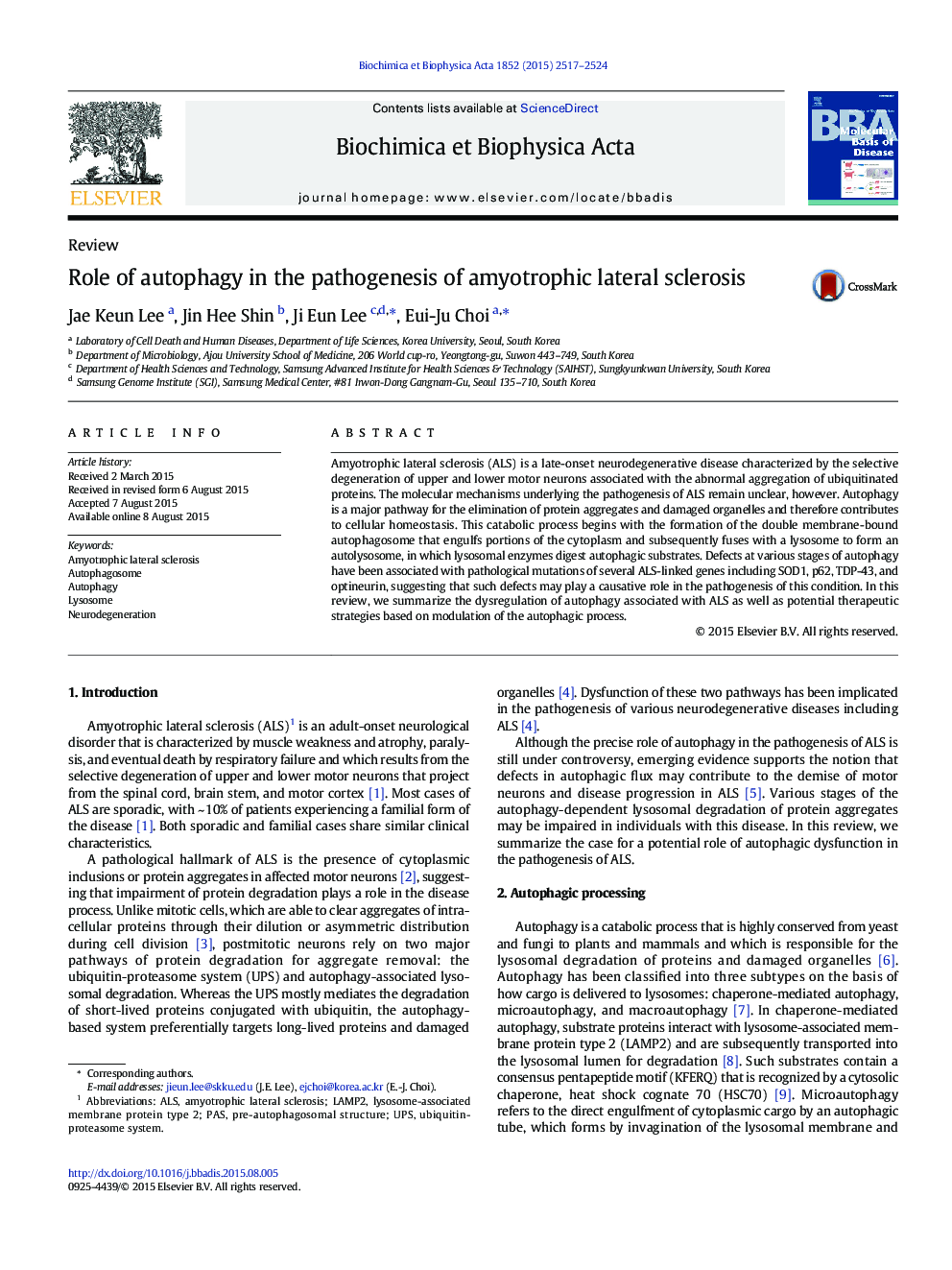| Article ID | Journal | Published Year | Pages | File Type |
|---|---|---|---|---|
| 1904545 | Biochimica et Biophysica Acta (BBA) - Molecular Basis of Disease | 2015 | 8 Pages |
Abstract
Amyotrophic lateral sclerosis (ALS) is a late-onset neurodegenerative disease characterized by the selective degeneration of upper and lower motor neurons associated with the abnormal aggregation of ubiquitinated proteins. The molecular mechanisms underlying the pathogenesis of ALS remain unclear, however. Autophagy is a major pathway for the elimination of protein aggregates and damaged organelles and therefore contributes to cellular homeostasis. This catabolic process begins with the formation of the double membrane-bound autophagosome that engulfs portions of the cytoplasm and subsequently fuses with a lysosome to form an autolysosome, in which lysosomal enzymes digest autophagic substrates. Defects at various stages of autophagy have been associated with pathological mutations of several ALS-linked genes including SOD1, p62, TDP-43, and optineurin, suggesting that such defects may play a causative role in the pathogenesis of this condition. In this review, we summarize the dysregulation of autophagy associated with ALS as well as potential therapeutic strategies based on modulation of the autophagic process.
Related Topics
Life Sciences
Biochemistry, Genetics and Molecular Biology
Ageing
Authors
Jae Keun Lee, Jin Hee Shin, Ji Eun Lee, Eui-Ju Choi,
